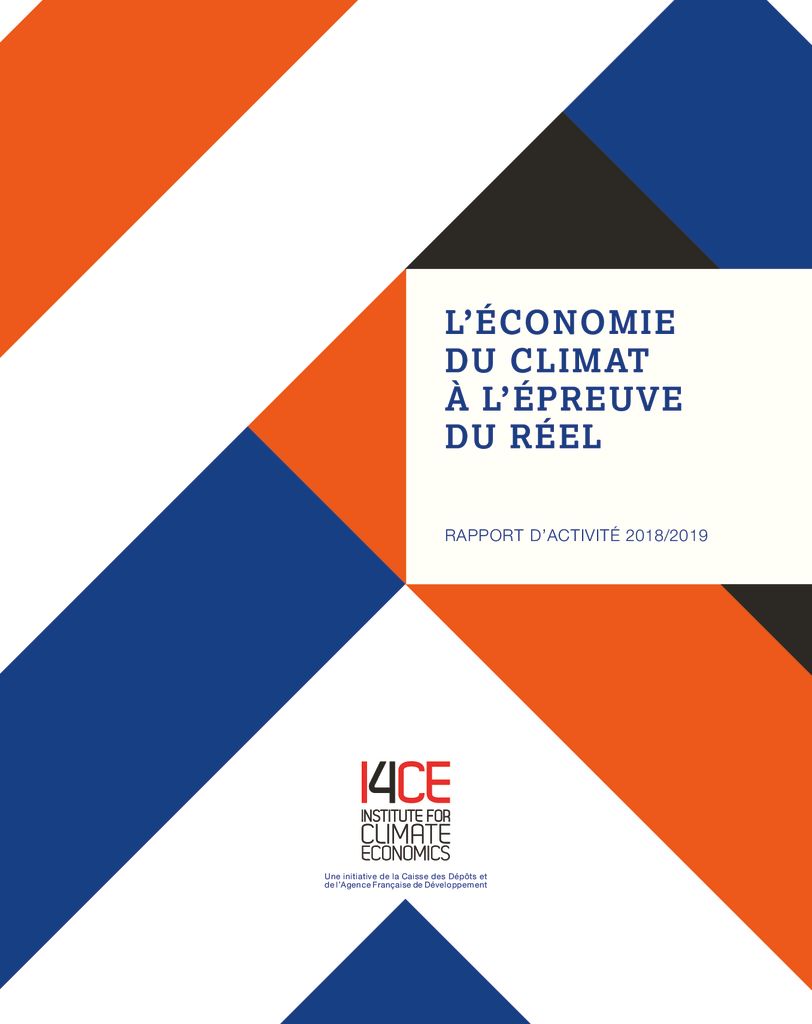Annual report 2018/2019: Putting Climate Economics to the test of reality
Foreword from Pierre DUCRET, Chair and Benoît LEGUET, Managing Director
“Economic expertise must be grounded in reality. The yellow-vest protests serve as a reminder of this fact”
I4CE WAS BORN FROM A CONVICTION: economic expertise is essential for climate action. This is because the building of a carbon-neutral and climate-resilient society requires transition financing, the mobilization of economic instruments, and a transformation of the financial system. I4CE has been accumulating this economic expertise for more than 15 years, which constitutes I4CE’s added value in the think tank landscape.
THIS EXPERTISE, however incisive, must be grounded bin reality. Without which, it may be ineffectual or, at worse, lead to dead ends. In France, the yellow-vest protests, initiated by an increase in the carbon tax, serve as a reminder of this fact: this economic tool, whatever its effectiveness in terms of the climate, has social impacts that lead to legitimate resistance. Resistance that should have been anticipated.
THE CHALLENGE FOR ALL CLIMATE-FOCUSED ECONOMICS and finance experts is to put their expertise into practice in the real world. Rather than being limited to general or theoretical considerations, they must instead work with the different actors of change, and understand and respond to their real problems.
THIS IS THE CHALLENGE THAT I4CE HAS BEEN MEETING each year, and the last twelve months has been no exception. The institute has learned from foreign carbon tax experiences to inform the French debate, and supported the launch of a low-carbon standard to financially compensate those who take action in the field. It has also supported financial institutions, their regulators and their supervisors, to help them operationalize their climate commitments.
OPERATIONALIZING, THE SHARING OF EXPERIENCES, supporting actors in the field… all phrases that are a translation of the same objective: putting I4CE’s economic expertise into a real world context.

